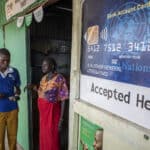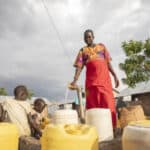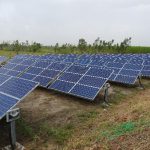Author: kkcf
Sexual and Gender Based Violence policy
Private Sector & Refugees Pathways to Scale
This paper offers practical and relevant insights, including case studies capturing the journey of setting up private sector initiatives. It looks at their progress to date, and key takeaways. Private sector actors understand why they should engage, and which approaches hold promise. But often the “how” remains less clear to them. They ask how to identify the best pathways for engagement, how to leverage their existing capabilities and assets, how to find and work with the right partners, how to learn from others, and, perhaps most importantly, how to attain impact at scale. The refugee agenda is challenging. The need for a private sector response is urgent.
Read the paper here: https://kkcfke.org/wp-content/uploads/2020/11/Private-sector-and-refugees-pathways-to-scale.pdf
Quality and Quantity of Water Available for Commercial Use
In March 2020, a study was started for IFC under the title “Feasibility Study on Quality and Quantity of Water for Commercial Use in Kakuma Refugee Hosting Area, North-western Kenya”. During the Inception Phase, three project goals were formulated in order to define the project activities.
Read more: https://kkcfke.org/wp-content/uploads/2022/07/Kakuma-Water-Availability-Report-Volume-1-Main-Report_December_2020.pdf
Energy Sector Baseline Study
This study provides information for businesses in the energy sector to help them assess opportunities for providing or expanding energy services in the Kakuma and Kalobeyei areas; it also provides insights to inform IFC interventions. The study maps the supply of and demand for energy for lighting, cooking, and productive use among households and businesses in the camp and examines the regulatory environment affecting the energy sector.
Read the study here: https://kkcfke.org/wp-content/uploads/2022/07/KKCFEnergyStudyReport_final.pdf
Kakuma as a market place

Kakuma as a Marketplace presents information for companies looking to enter the substantial, yet mostly untapped market, in Kakuma. Commercial and financial data is necessary for private sector engagement, but there is seldom information available on refugees outside of academic, development, and humanitarian studies. Through its findings, we hope that this study might lay the foundation for private initiatives to harness and strengthen the existing business opportunities in Kakuma to the benefit of the refugees and the host community – and for refugees to lead self determined lives.
Read the study here: https://kkcfke.org/wp-content/uploads/2020/11/Kakuma-as-a-marketplace.pdf


